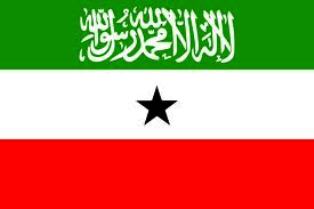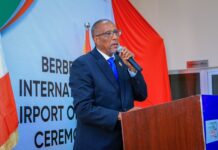According to the World Bank migrants remits 435 billion dollars to their families in the countries of origin. This means that the amount of money the diaspora send back to their countries of origin exceeds international aid almost four times. Only in the case of Somaliland, the diaspora transfers approximately 400million dollars every year 20 percent of the countries economy.This exceeds the total sum for aid to Somaliland.
Remittances make a significant contribution to Somaliland’s household income and food security. In Somaliland an estimated 40% of families depend on them to meet their food security needs. Somaliland economy is highly dependent on remittance, which is a significant contributor to family income and investment,
with implications for poverty reduction. Studies on remittances in Hargeisa, and Burco cities indicate that remittances constitute nearly 40 percent of the income of urban households, and account for roughly 14 percent of average rural consumption. Somaliland, in terms of per capita remittance received ($105), and contribution to gross domestic product (GDP) (20%), ranks fourth among remittance dependent economies after Tongo (38.6%), Lesotho (28.7%) and Jordan (23%)
For example the Somaliland diaspora in Sweden are among the most active diaspora groups in Sweden to mobilize capital and human resources for transfer to their country of origin.
The money sent to Somaliland by the diaspora have contributed not just to poverty reduction. They have been used for food, health care, housing, development, training and employment support to family members. Remittances of the Somalilanders show clearly that a migrant affect development positively in their country of origin, despite that the migrant has moved.
Kowsar Aden is a Swedish –somaillanderwoman in the age of 32, single mother with tree children and works as consultant. She does support two families her own children and her mother who lives in Hargeisa through monthly remitting $200. She has done this since 1998. Kowsars mother uses the money to cover 8 of Kowsars sisters and brothers basic needs such as food, water, and school fees for children. Kowsars mother is a widow since 1988 and she has been supporting the family alone through working as midwife in Hargeisa and earning $50 per month. The remittance from her daughter is a very important lifeline for the family, who are fully dependent on the money. Without it the family would have difficulties to survive.
Besides financial help the diaspora also contributes to development and poverty reduction by transferring new knowledge, experiences, techniques and contacts. When the migrants return, for however long time, they bring with them the knowledge and experience they have acquired. The diaspora is often the only body that continuously supports a specific area or community. An example that illustrates a point on the role of the Somalilanders diaspora communities in transferring of knowledge by doctors, psychologists and scientists with collaboration of local universities to improve healthcare system of the country.
A large numbers of Diaspora professionals and entrepreneurs already in the country creating employment and sharing their expertise. And contributing to the countries infrastructure such as building schools, hospitals etc. Among the large entrepreneurs could be found like the owners of Ambassador and Maansoor Hotel with hundreds of employees. Additional point on the case is Kaahthe major Electric Power and Lighting Company.
The other components that diaspora contributes in is social and political remittances. The Somaliland diaspora have active participation in development in their countries of origin.
For a long time, members of the diaspora have been returning to Somaliland and taking part in the political leadership of the countries. The diaspora has always been playing a role in the political destiny of the country. For example two main opposition parties in the country are founded by diaspora, Justice and Welfare Party, founded in 2001 by Faysal Ali who still, is Chairman, and Wadani founded by Abdirahman Mohamed Abdullahi who is still Chairman.
As well as the governing political party Kulmyia which is predecessor to Somali National Movement (SNM) who was formed by the Somalilanders in Diaspora and who played a key role in liberation and re-independence of Somaliland.
This is illustrated in the following figure.
| Diaspora and political leadership in Somaliland | ||||||
| Head of States | Ministers/PMs | Vice-Ministers | State Ministers | Totalt | Diaspora | |
| Somaliland | 2 | 26 | 24 | 8 | 58 | 28 |
The Council of Ministers consists of 26 Ministers, 8 State Ministers and 24 Vice-Ministers.
The government in Somaliland has realised the importance of the the diaspora and has established a special Diaspora Agency under the ministry of foreign Affairs & international cooperation since 2010. President Ahmed Mohamed Mahmoud Silanyo has appointed in April 2015 the new head of Somaliland Diaspora Agency. Mr. Abdi Abdullah Hersi
Somaliland Diaspora Agency is working to strengthening Diaspora relations and engagement in the country. One of the Agency’s tasks is to make sure that Somaliland Diaspora communities are engaged in national development and make sure that the Diasporas communities have appropriate channels to collaborate with the key government institutions and the other stakeholders of concern.
The intention is in addition to facilitate the flow of Diaspora capital and know-how, the government will encourage Diaspora engagement by:
(i) Establishing National Diaspora development trust fund, (ii) Developing Private investment funds that target the Diaspora, (iii) offering special tax exempt savings accounts for the Diaspora, (iv) Supporting Diaspora community development organizations, (v) Initiating Diaspora youth and professionals volunteers exchange and placement schemes, and (vi) Promoting Diaspora cultural tourism.
MussieEphrem
Political scientists and a student of law at the Gollis University
Hersi served four years as the Senior Administrative Officer of Mission Support in the United Nations African Mission in Darfur, Sudan (UNAMID). Prior to his peace keeping experience he also spent several years working between Afghanistan, Pakistan and North Korea with the United Nations World Food Program (WFP) as an Administrative and Finance Officer.
























